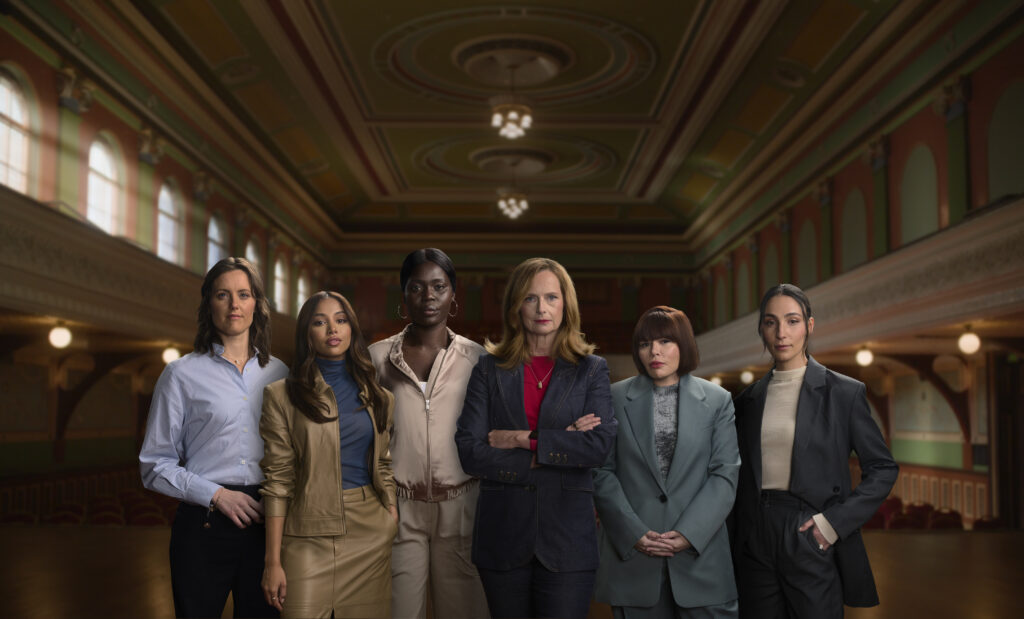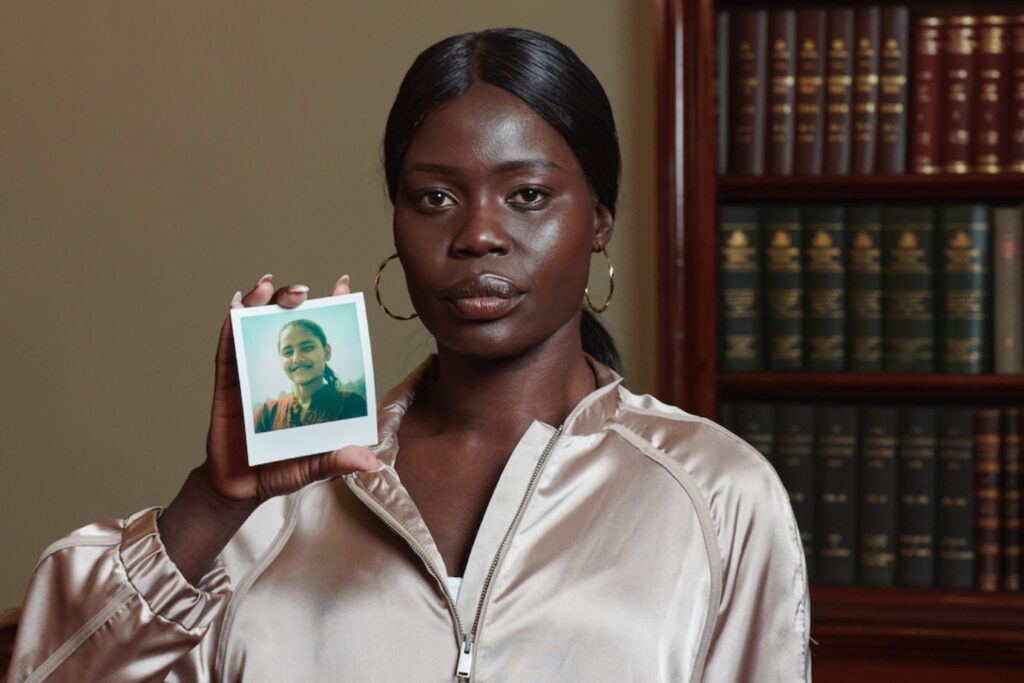Her name is Neha. When she was 14, she received a marriage proposal from a much older man. In Nepal, girls are denied education and forced into marriage. Women are under the control of men, and they rarely get to experience life outside the household.
When former AFLW player Akec Makur Chuot read her story, she was reminded of her little sister.
“She was young. She was just a young girl,” Akec told Women’s Agenda. “How can you take that away from her?”
In 2013, when she was just 15 years old, Akec’s younger sister was married off to an older man, who had two children of his own. It hurt Akec deeply, causing a rift between her and her family in South Sudan.
“I was really angry with my family for a very long time, because I didn’t understand why adults and people that I knew and trusted would do that,” Akec says.
“I was so lucky that I wasn’t in South Sudan, because if I was, they would have probably done the same thing to me.”
Akec was 21 at the time, living in Perth and making moves to become one of Australia’s founding AFLW stars – and the first African woman to play the national sport.
Now, with a strong platform and a strong voice, Akec is determined to lift up the voices of women and girls who often go unheard.
“We let my little sister down,” Akec says. “It cannot happen again. It will not happen again.”
Life in a refugee camp
Akec was born in South Sudan, a country that has been in the grip of political and social instability for decades. When she was born, her mother made the decision to move her family to Kakuma, a refugee camp in Kenya.
“No one chooses to be a refugee,” Akec says.
“We resettled in Kakuma at a time where it was a newly built refugee camp – we had a front row seat.”
The camp, established in 1992, is now home to more than 150,000 refugees, primarily from South Sudan and Somalia. Akec still remembers what it was like: waiting for monthly rations, meeting other refugees, helping out in the family-owned restaurant in the camp.
But Akec was a kid in Kakuma – she never had to face “the real problems” of living in a refugee camp. She has her mother to thank.
“It was my mum – my amazing mum,” Akec says.
“My mum has always been that person just making it happen with the limited resources that she had.
“We looked forward to tomorrow. We had hope for better.”
‘I was so disappointed, and really hurt.’
Akec spent the first 11 years of her life in Kakuma, before she moved to Perth, WA, in 2005. Akec lived with her family, went to school and even had a go at Aussie Rules – a game that would soon define her career.
In 2013, she went back to her home country in South Sudan, to meet her little sisters for the first time.
“I just assumed I’d come back home and my little sisters would probably be in primary school getting an education,” Akec says.
But she was wrong. She found out her brother had arranged for her little sister, who was 15 at the time, to marry a much older man. He was based in Australia, and even had two children of his own – one who was the same age as his soon-to-be child bride.
“I was so disappointed, and really hurt,” Akec says.
“This young girl’s life was taken for granted. They took advantage of just how young she was.”
For a long time, Akec was angry with her family for letting this happen.
“I didn’t understand why adults and people that I knew and trusted would do that,” Akec says.
“I was so lucky that I wasn’t in South Sudan, because if I was, they would have probably done the same thing to me.”
But Akec found the strength and the courage to turn that anger into something powerful. She had “candid” conversations with her brother and family members who oversaw the arranged child marriage of her little sister – about why it was wrong, and why it should never happen again.
“It’s not a cultural norm,” Akec says. “We are not a culture that marries off kids. They’re kids. They don’t have the decision-making ability to choose for themselves what it is they want.”
Akec spoke up not just for her little sister, but for the next generation of girls – her nieces, girls in her community, girls she had never met before.
“We let my little sister down,” Akec says. “It cannot happen again. It will not happen again.”
1,000 Voices for 1,000 Girls
Akec’s sister is not alone. In fact, every three seconds, a girl is forced to be a child bride.
Statistics from World Vision puts it simply: if the world were 1,000 girls, 200 would be married, 128 would be out of school, and 48 would have experienced forced sex.
These are shocking, but real numbers. And behind those numbers are 1,000 tragic real life stories.
One such story is Neha, a young girl from Nepal.
“Here in Nepal, the position of female is less than male,” Neha wrote in a letter, read by Akec as part of the campaign.
“If they have a daughter, they see no need to educate her. Women say their life is not their own, because they have to do whatever the male says. They only work at home, and have never been outside.
“But it’s not the same for me.”
When she was 14, she received a marriage proposal. But she refused to accept it.
Now, at 18 years old, Neha is leading programs, with the help of World Vision, to end child marriages in her community. So far, she has stopped three child marriages.
World Vision is running the 1,000 Voices for 1,000 Girls campaign, where trailblazers like Akec are lifting up the stories and voices of these girls who suffer immensely from practices like forced child marriages.

Akec, the first African woman to play AFLW and now a Channel 7 AFLW commentator, is proud to be part of the campaign.
“I have a bigger platform than most people do,” Akec says, “so I need to do my part to support people like my little sister, so their voices also can be heard.”

